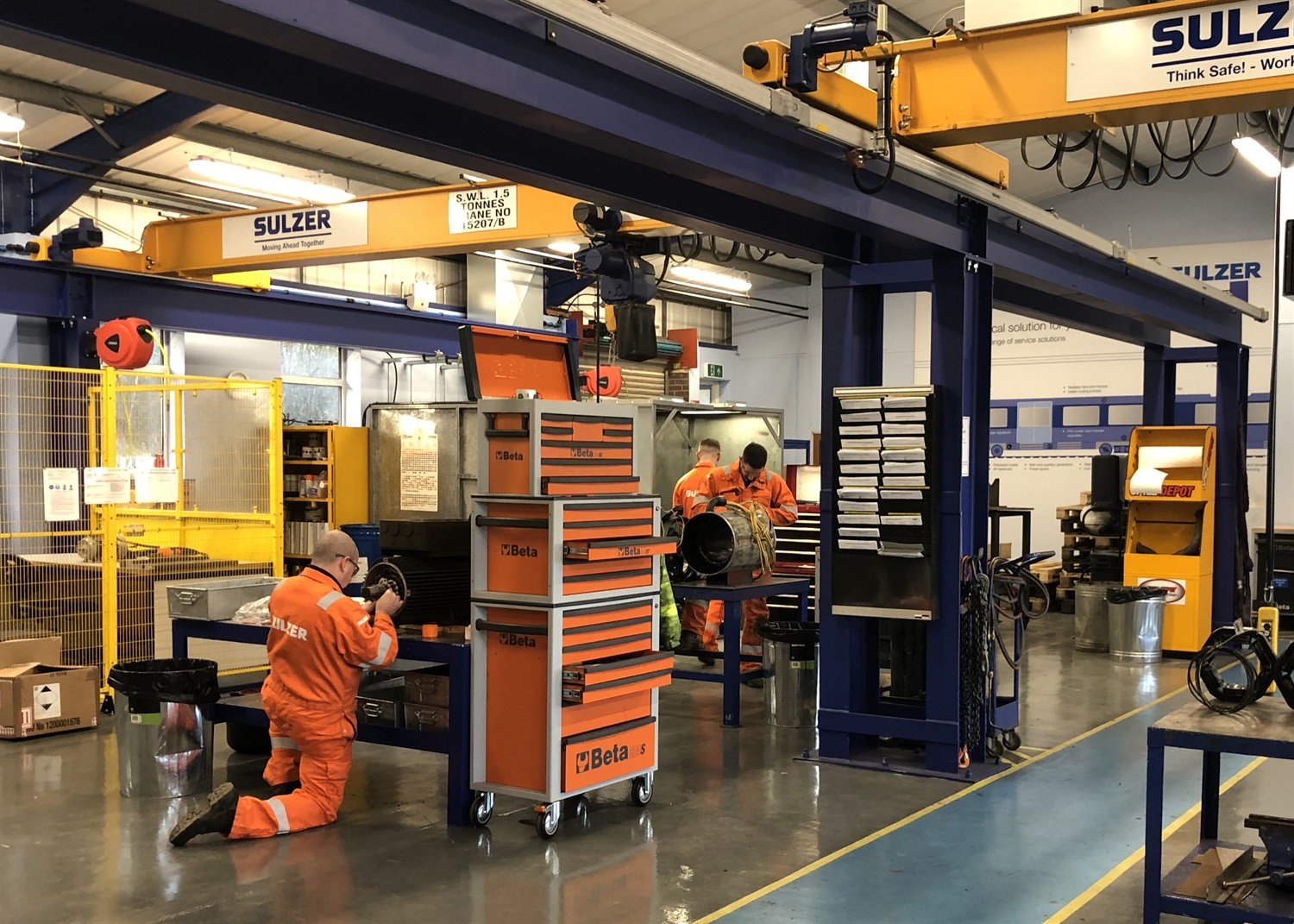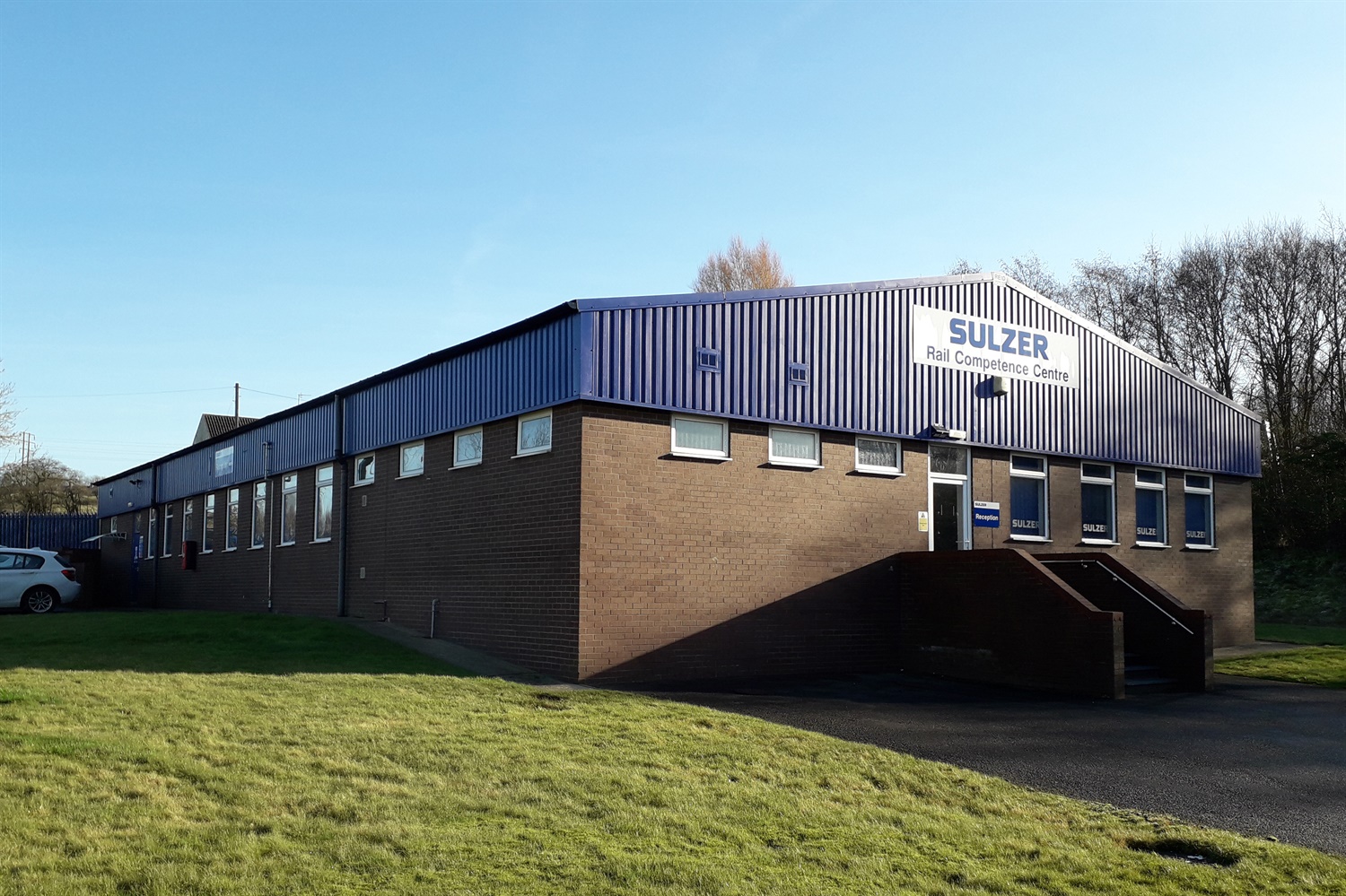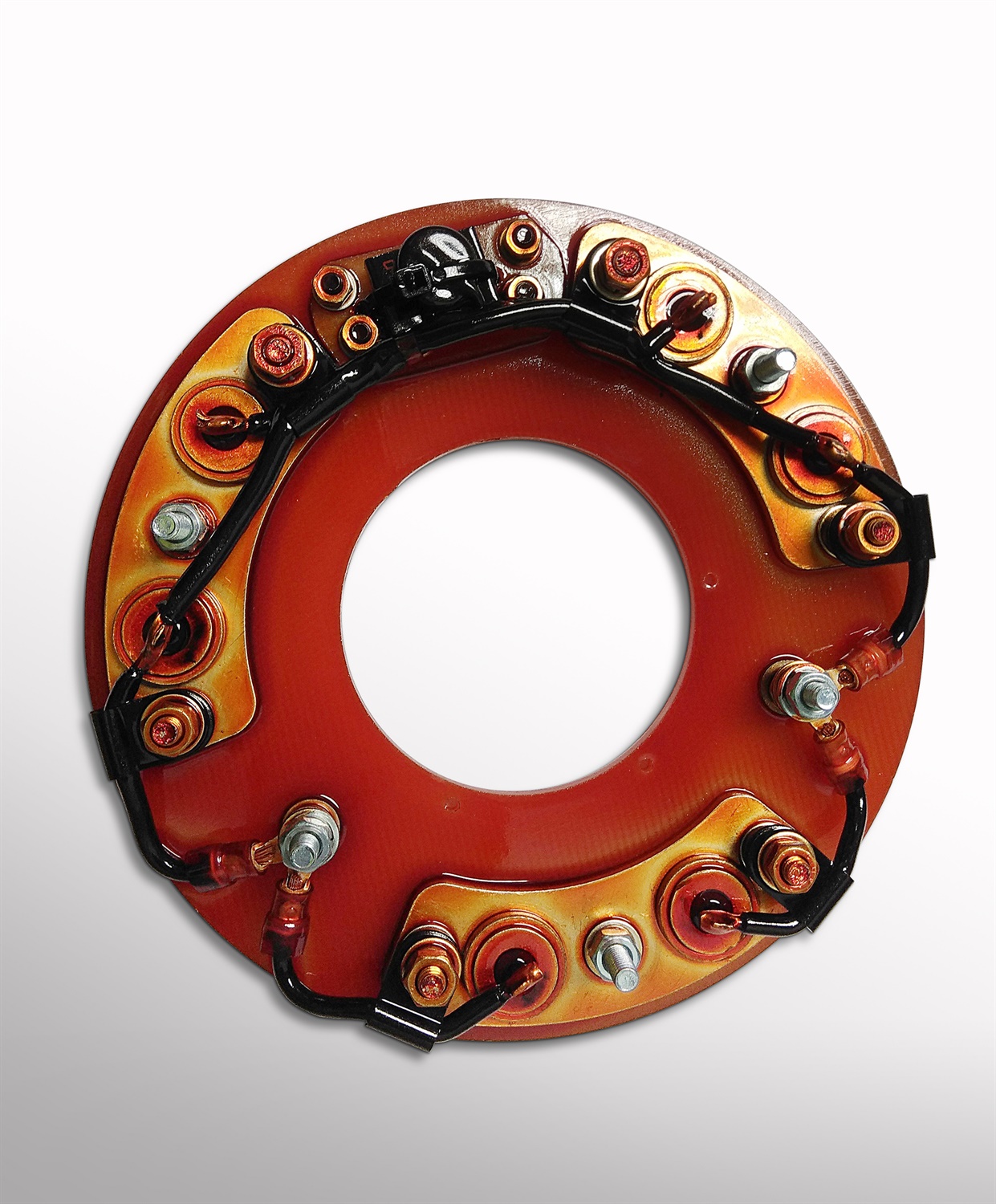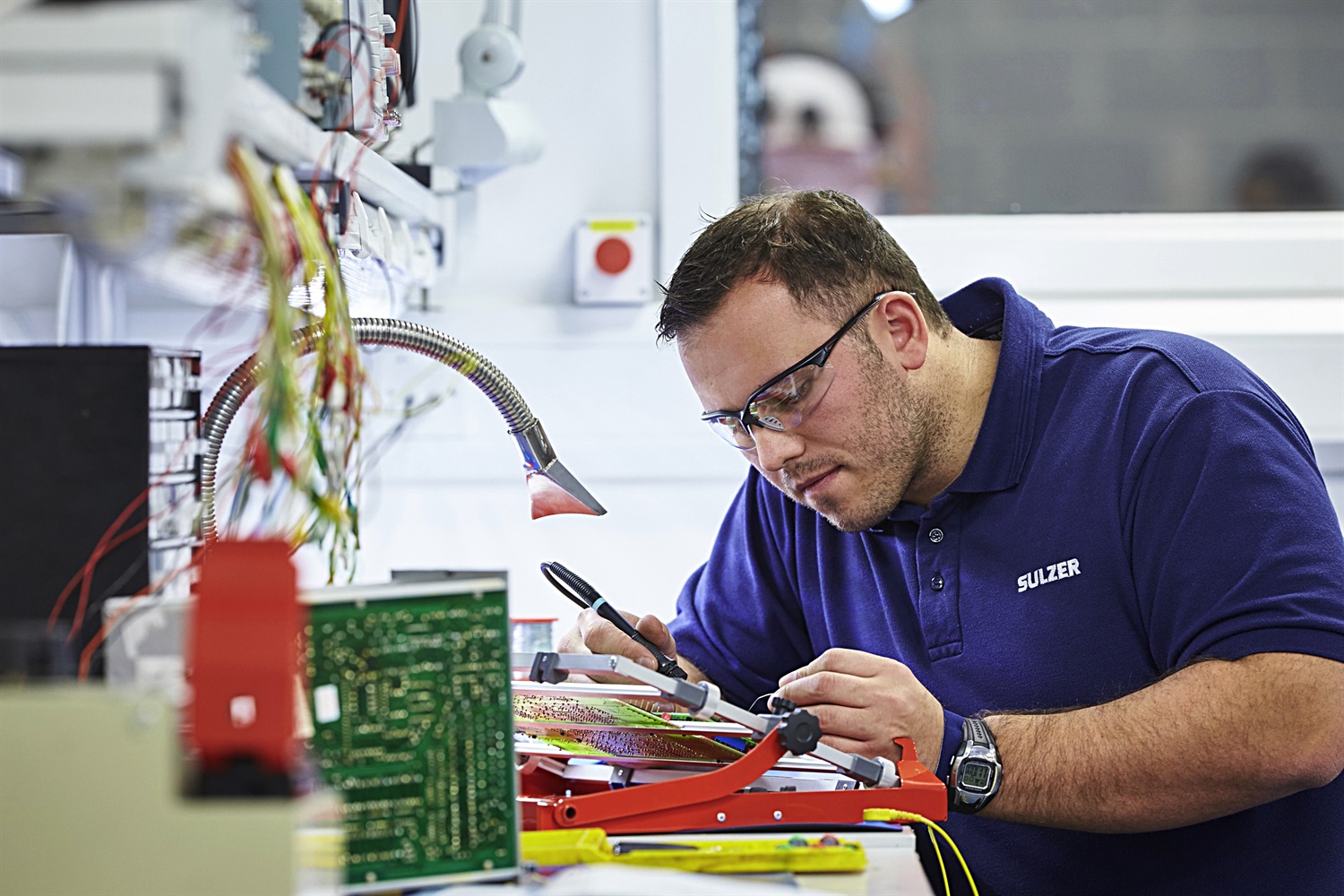29.06.20
On the right track, Sulzer is awarded RISAS accreditation for Nottingham Service Centre
Following an independent audit, Sulzer’s Nottingham Service Centre has been accepted as part of the rail industry supplier approval scheme (RISAS). The accreditation reinforces the high-quality standards that are maintained by Sulzer’s network of independent repair facilities across the UK and further afield in its global network.
Rail travel forms an important part of any national transport network for both passengers and freight. As such, it needs to be safe and reliable and these features depend on timely maintenance being completed to a high standard.
The rail industry depends on a number of trusted suppliers who are expected to deliver the highest quality repairs. The RISAS uses independent auditors to assess suppliers and all their systems, procedures, resources and training to ensure they meet all the criteria for the successful delivery of components and services to the industry.
Sulzer’s Nottingham Service Centre boasts a Rail Competence Centre which successfully completed the independent audit and been awarded the RISAS accreditation, which covers alternators, generators, rotating rectifiers, any type of DC traction motors, fans and blowers.
The audit is a comprehensive assessment that covers the entire process of supplying components to the rail sector. From the supply chain to the procedures, resources and competencies, including training, every aspect is assessed to ensure it meets the stringent industry standards.

Image Caption: Sulzer’s expert engineers are RISAS approved to cover a wide range of rail components
The RISAS accreditation is awarded by product line as well as to a particular location or business. In Sulzer’s case the entire Nottingham facility, which encompasses both the main workshop and the rail centre, are covered because some of the larger traction motors are repaired in the general maintenance centre.
Mark Taylor explains: “Many tier 1 contractors who support the rail sector will take the RISAS accreditation as a good indicator to the quality of work that can be expected from the supplier, avoiding the need to carry out their own audits. This saves time and money for all those involved in the tender process and ultimately reduces the time to complete the repair project.”
This is the first RISAS accreditation for Sulzer, which is looking to expand the number of services centres that hold this certification. Currently the facilities in York and Avonmouth, which also carry out work for the rail sector, are in the process of gaining RISAS accreditation.
Mark concludes: “Having achieved the RISAS accreditation for so many components, it is a relatively simple task to include additional assemblies if required. Say, for example, a customer needed some pump repairs to be delivered under the scheme; we can arrange to be audited for the new component before the pump repairs are completed, ensuring the project is delivered to the exact requirements of the customer.”

Image Caption: Sulzer’s Rail Competency Centre in Nottingham offers repair and engineering expertise to the rail industry
Case Study: Design changes address issues with rotating rectifiers
An issue with the diode ratings and the lack of surge protection in one design of rotating rectifier has been experienced by several rail operators, causing trains to be taken out of service. Working with its rail industry customers, maintenance engineering specialist Sulzer has recognized the common fault and developed a solution to the issue. The result is a faster repair that is now reducing the downtime for affected trains and helping to maintain scheduled services.
Mark Taylor, Service Centre Manager at Sulzer’s Rail Competency Centre in Nottingham, looks at how Sulzer has resolved one of the main reliability issues in UK passenger trains.
Trains play a key part in our lives. Commuters and travellers alike rely on trains to get them to their destinations on time. Whether this is for work, visiting friends and family or going on holiday, this service depends on trains that are reliable. One of the key components onboard a train is the auxiliary generator which incorporates a rotating rectifier. The alternator powers the auxiliary circuits such as lighting, battery charging and air conditioning.

Image Caption: : The improved design for the rotating rectifier will almost completely eliminate failures
However, when this well-known issue with the rotating rectifier occurs, the train must be taken out of service and there is a considerable mechanical and electrical task involved in repairing and getting the train back to operational status. In order to ensure scheduled services for passengers, the hope is that the proposed solution will be adopted by more companies so that the impact of this issue can be minimized.
Impact assessment
The alternators are located within the bogie assemblies of the trains and they are responsible for regulating the auxiliary power for the trains. The rotating rectifier is an integral part of the brushless alternator and any faulty component means that the engine has to be taken out of service for repairs. Hence when they fail, service is disrupted.
Due to their location, the repair can be a time-consuming task. With that said, it is easier to replace the rectifier than remove the entire alternator, so many train operators, or their maintenance contractors, are holding several rectifiers in stock.
However, as maintenance engineers correlated information, it became clear that the issue is not related to time in service. The failures can occur at any time, which means a recently installed component has the same chance of failing as an old one. It is this repetitive, but still random, nature of the issue that is causing so much concern for the rail operators because even shortening a planned maintenance schedule will not affect the reliability of these components.
Root cause analysis
Sulzer’s experts in Nottingham conducted an investigation into the rectifier failures and proposed an improved design that would be fully interchangeable with the original. With decades of experience in rail engineering, Sulzer’s service centre in Nottingham is renowned as a centre of excellence for the rail sector.
The investigation into rectifier reliability discovered that the current rating of the diodes appeared to be inadequate, particularly for transient and field forcing conditions. In addition, the mechanical clearances between the diodes and the earthed hub were insufficient, offering the potential for short-circuit failures. The engineers also found that there was no surge or spike suppression fitted, which could lead to diode failures due to surges transmitted to the rotor caused by external faults or load changes.
The engineers proposed a design that used higher rated devices as well as the addition of transient suppression to protect against electrical surges. The new rectifier also has increased mechanical clearances to prevent short circuit failures.
Design improvements
Typically, rail operators expect this type of component to perform without any maintenance for four years, after which the regular service routine will instigate an inspection. Sulzer’s new design of rectifier is expected to far outlast the current equipment, in fact, there is very little reason for it to fail at all.
This is just one example of Sulzer’s engineering expertise being applied to the rail industry. Another notable project involves the repair or redesign of automatic voltage regulator (AVR) cards, which also pose a considerable reliability issue within the industry.
Ultimately, Sulzer’s aim is to work with rail operators and their maintenance providers to develop solutions that improve reliability and efficiency, making the business of operating trains more cost-effective. This in turn will make more trains available for operation, helping to ensure that we all reach our destinations on time.

Image Caption: Sulzer’s expertise in the design of electronic components improves reliability for customers